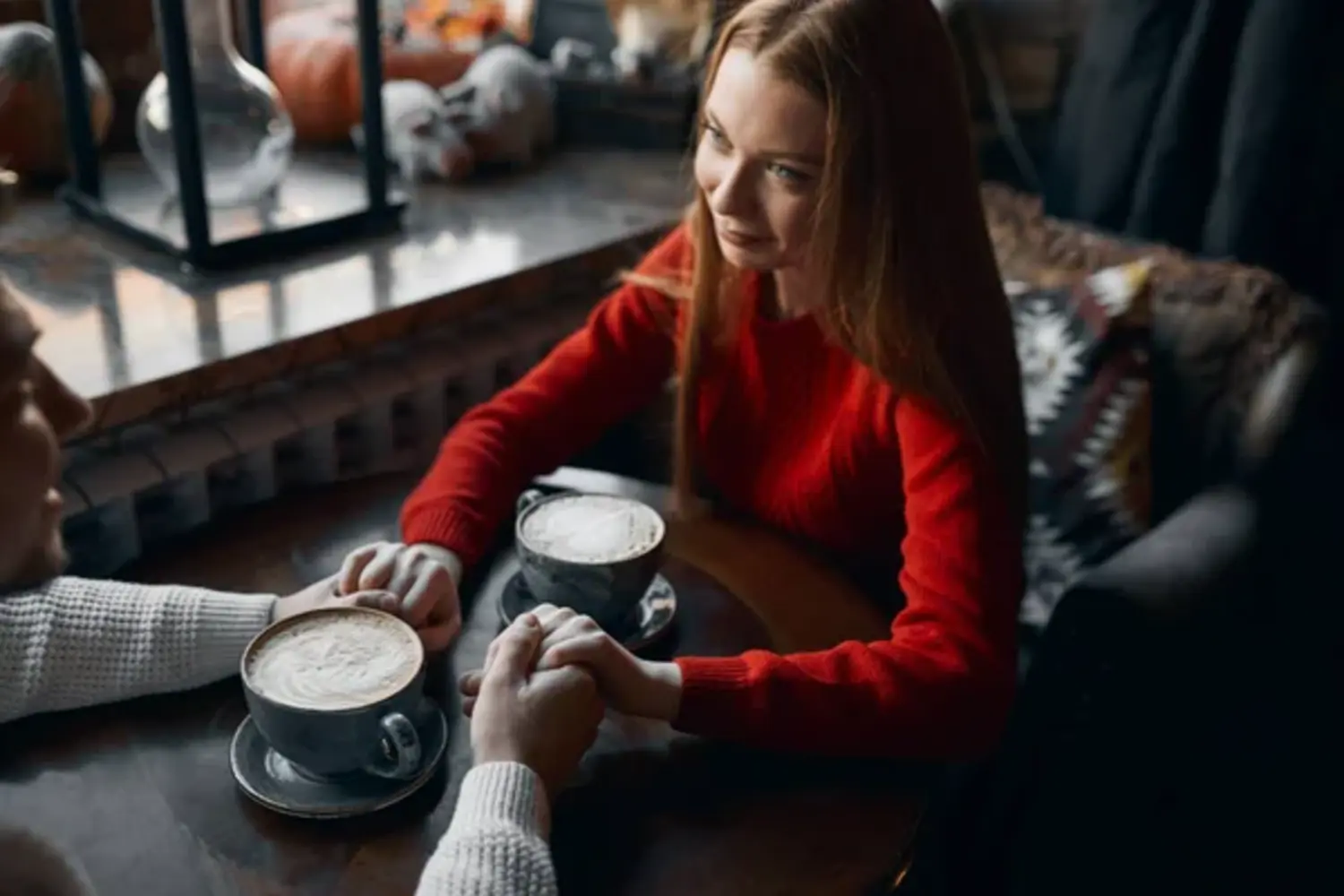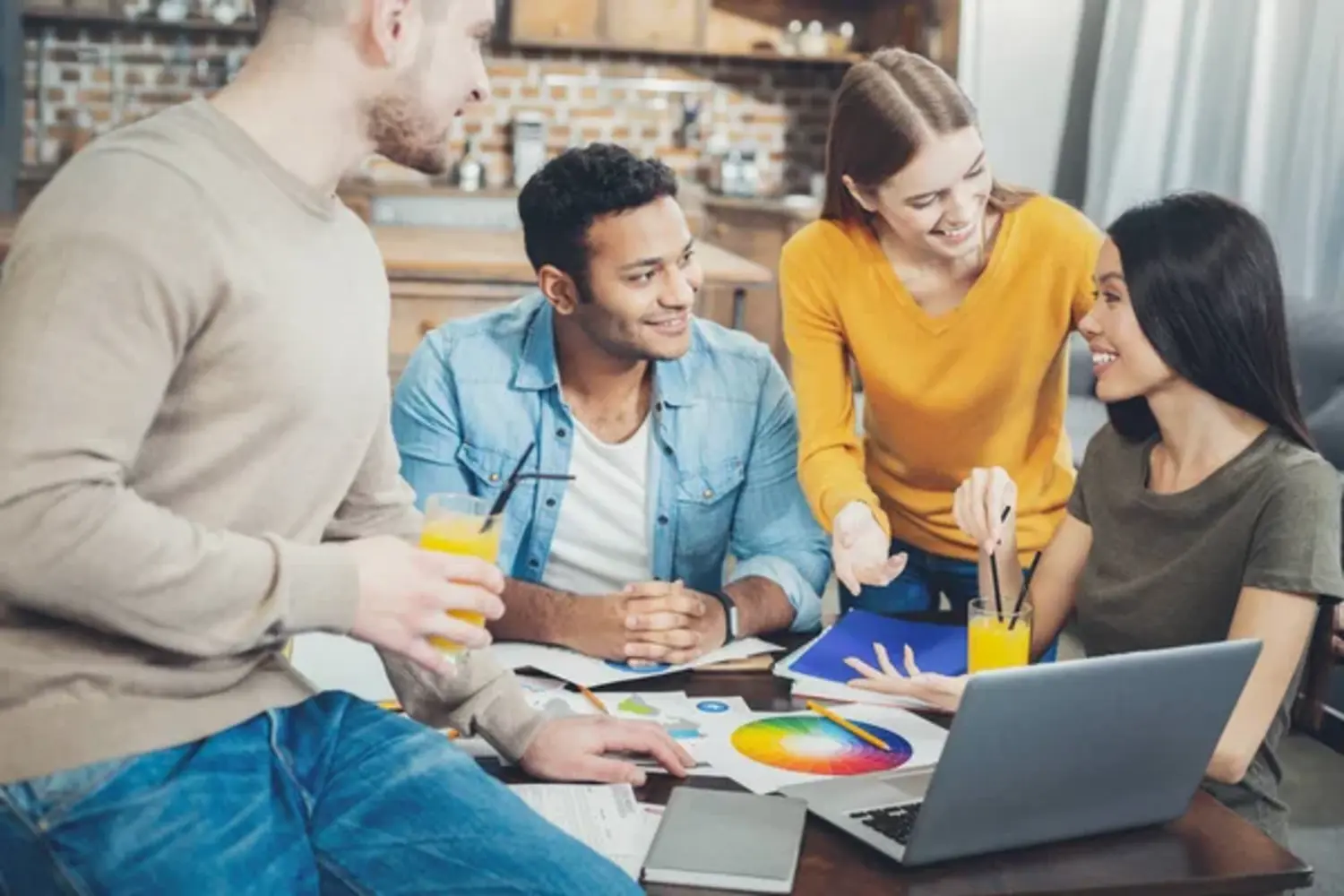Why do guys not find me attractive? It’s a question that might have crossed your mind, leaving you pondering the elusive reasons behind their lack of interest.
As you’ve navigated the realm of dating and relationships, you’ve likely wondered what aspects of yourself may be influencing their perception of you.
Attractiveness is a complex and subjective phenomenon, shaped by an amalgamation of factors ranging from physical appearance to personality traits.

Why Do Guys Not Find Me Attractive?
“Why do guys not find me attractive?” This perplexing question often lingers in the minds of individuals seeking meaningful connections and relationships.
It is a natural curiosity to wonder why certain people may not perceive us as attractive despite our best efforts to engage and connect.
Attractiveness is an intricate interplay of various factors, including physical appearance, personality, interests, and compatibility. Understanding these multifaceted aspects can shed light on the possible reasons behind the perceived lack of attraction.
In this exploration, we will delve into the intricacies of why some guys might not find you attractive, aiming to unravel the underlying reasons and offer empowering solutions to enhance your self-confidence and sense of self-worth.
By unraveling these complexities, we aim to empower individuals with newfound self-awareness, self-confidence, and the ability to embrace their uniqueness in the pursuit of genuine and meaningful connections.
So, let us embark on this enlightening journey of self-discovery and personal growth to redefine what true attractiveness entails and foster fulfilling relationships.
Unraveling the Reasons Why Do Guys Not Find Me Attractive?
Self-Reflection: Understanding Personal Perception
A. Analyzing Self-Perception And Self-Esteem
One of the fundamental aspects of attractiveness lies in how we perceive ourselves. Our self-perception acts as a lens through which we view the world, impacting our interactions and the way others perceive us.
It is essential to take a candid look at how we view ourselves and whether our self-esteem aligns with a positive and empowering mindset. Low self-esteem can project a lack of confidence to others, making it difficult for them to see our true worth.
B. Identifying Insecurities And Negative Self-Talk
Unearthing our insecurities and negative self-talk is a crucial step in understanding how they may affect our perceived attractiveness.
These internal dialogues can create self-imposed barriers, making it challenging to let our true selves shine. By recognizing and addressing these insecurities, we can begin to break free from their limitations and open ourselves up to more positive and authentic interactions.
C. Emphasizing The Importance Of Self-Love And Acceptance
Embracing self-love and acceptance is vital in cultivating genuine attractiveness. When we love and accept ourselves, we radiate magnetic energy that draws others toward us.
It’s essential to recognize that everyone possesses unique qualities and imperfections, which make us beautifully human.
Embracing these aspects and showing ourselves the love and compassion we deserve can be transformative in how we perceive ourselves and how others perceive us.
Physical Appearance
A. Recognizing Individual Preferences In Physical Attraction
It is essential to understand that attractiveness is highly subjective, and individual preferences play a significant role in how others perceive us physically.
What one person finds attractive may differ from another’s perspective. Instead of aiming to conform to specific beauty standards, embracing our unique physical attributes can be incredibly empowering.
B. The Role Of Grooming, Hygiene, And Self-Care
While physical appearance is subjective, taking care of ourselves through grooming, hygiene, and self-care can positively impact how we present ourselves to others.
Engaging in regular grooming and maintaining good hygiene demonstrates self-respect and can boost our confidence.
C. Solutions: Embracing Personal Style And Enhancing Confidence
Rather than trying to fit into societal norms, embracing our personal style and individuality can make us more appealing to the right people.
When we feel comfortable and confident in our appearance, it reflects in our demeanor and interactions. Taking steps to enhance our confidence, such as setting and achieving personal goals, can further boost our attractiveness.

Body Language And Communication
A. The Significance Of Confident Body Language
Body language speaks volumes, often conveying more than words can express. A confident posture, genuine smile, and eye contact can exude charisma and attract others’ attention.
On the other hand, closed-off or nervous body language may unintentionally deter potential connections. Understanding the power of non-verbal cues can significantly influence how we are perceived.
B. Exploring Effective Communication Skills
Communication is the foundation of any successful relationship. Being able to express thoughts and feelings clearly, listening actively, and responding thoughtfully are vital components of effective communication.
Mastering these skills can facilitate engaging conversations and create a sense of ease and connection with others.
C. Solutions: Practicing Assertiveness And Active Listening
Practicing assertiveness involves confidently expressing our needs and boundaries without being overly aggressive. It shows self-respect and earns respect from others.
Honing active listening skills, where we attentively understand and acknowledge others’ perspectives, fosters a deeper level of connection and mutual understanding.

Sense Of Humor And Emotional Intelligence
A. Understanding The Appeal Of A Good Sense Of Humor
A good sense of humor is a universal language that transcends barriers and creates an instant connection. Laughter not only brings joy but also releases feel-good chemicals, fostering a positive atmosphere.
People with a witty and light-hearted nature tend to draw others towards them, as they can effortlessly put others at ease and infuse joy into any interaction.
Humor can serve as an icebreaker in various social settings, allowing us to find common ground with others. Being able to share laughter and find amusement in everyday situations makes us approachable and relatable, making it easier for others to feel comfortable around us.
B. The Role Of Emotional Intelligence In Relationships
Emotional intelligence involves being in tune with our emotions and the feelings of others. By empathizing with the experiences and struggles of those around us, we create a deep sense of understanding and support.
This emotional connection forms the foundation of meaningful relationships.
Emotionally intelligent individuals possess strong communication skills that enable them to navigate conflicts with grace and respect.
They can express their emotions effectively and listen empathetically, promoting open and honest dialogue. This ability to communicate constructively strengthens the bond between individuals.
C. Solutions: Cultivating Humor And Emotional Connection
Cultivating humor begins with embracing our playful side and finding joy in simple moments. We can look for humor in everyday situations and learn to laugh at ourselves, which not only lightens the mood but also demonstrates self-acceptance and confidence.
To enhance our emotional intelligence, we must actively practice listening with the intent to understand rather than simply responding.
We can seek to put ourselves in others’ shoes, acknowledging their emotions and validating their experiences. This fosters trust and deepens the emotional connection.
Developing emotional intelligence requires regular self-reflection and awareness of our own emotions. By understanding our triggers, strengths, and weaknesses, we can better relate to others’ experiences and constructively handle emotions.
Shared Interests And Hobbies
A. Building Connections Through Shared Interests
Shared interests are more than mere hobbies; they are the threads that weave deep connections between individuals.
Discovering someone who shares our passions creates an instant rapport and allows us to delve into engaging conversations, fostering a sense of belonging and understanding.
B. Finding And Pursuing Passions To Enhance The Attractiveness
Passions are the fuel that ignites our souls and makes us come alive. When we wholeheartedly pursue our interests, we exude an aura of enthusiasm and authenticity that is inherently attractive.
Embracing our passions adds depth to our personalities and showcases our dedication and commitment to our unique interests.
C. Solutions: Joining Clubs Or Social Groups To Meet Like-Minded People
To amplify the impact of shared interests, seeking out clubs or social groups centered around our passions can be immensely beneficial.
Joining such communities provides an avenue to meet like-minded individuals, creating opportunities for deeper connections and potential romantic relationships.
Confidence And Self-Assurance
A. The Importance Of Self-Confidence In Attractiveness
Confidence is the gleaming gem in the crown of attractiveness. It radiates from within, drawing others towards us like a magnet. When we exude self-confidence, we inspire trust and admiration, making us more appealing to potential partners.
B. Overcoming Self-Doubt And Insecurities
Insecurities can act as barriers to forming meaningful connections. Addressing and overcoming self-doubt allows us to present our true selves authentically, unburdened by fear or self-criticism.
Self-awareness and acceptance pave the way for self-improvement and personal growth.
C. Solutions: Building Self-Confidence Through Self-Improvement
Building self-confidence is a journey of self-improvement. Setting and achieving personal goals, developing new skills, and nurturing self-love are powerful steps toward building unwavering self-assurance.
Embracing our strengths and accepting our imperfections contribute to a confident and attractive demeanor.

Past Relationship Experiences
A. Examining Past Relationship Patterns And Dynamics
Our past relationships can leave lasting imprints on our perceptions of ourselves and potential partners. Reflecting on past patterns and dynamics allows us to identify recurring themes or issues that may impact our present interactions.
Understanding these patterns empowers us to break free from detrimental cycles and grow from past experiences.
B. Addressing Unresolved Emotional Baggage
Emotional baggage from previous relationships can linger and affect our emotional well-being. Unresolved feelings of hurt, betrayal, or inadequacy can unconsciously seep into new connections, creating barriers to forming meaningful relationships.
Acknowledging and addressing this emotional baggage is crucial for healing and personal growth.
C. Solutions: Seeking Closure And Healing From Past Experiences
Seeking closure from past relationships can be a transformative step toward healing. This closure may involve forgiving ourselves and others, learning from the past, and embracing the present with a renewed sense of emotional clarity.
Engaging in therapy or counseling can be valuable for navigating through unresolved emotions.
Unrealistic Expectations
A. Identifying And Managing Unrealistic Expectations In Oneself And Others
Taking a sincere look at our expectations is essential. It involves examining what we desire in a partner and whether these expectations are grounded in reality.
Unearthing unrealistic beliefs about ourselves and potential partners can be a transformative step in reshaping our approach to relationships.
Society and media often paint a picture of perfect relationships, leading to unrealistic fantasies and expectations. Recognizing the influence of external factors can help us distinguish between genuine desires and unattainable ideals.
Managing unrealistic expectations requires open communication with potential partners. Discussing expectations early on can lead to a better understanding of each other’s needs and values, fostering a solid foundation for the relationship.
B. The Dangers Of Seeking Perfection In Relationships
Seeking perfection in relationships sets unrealistic standards for ourselves and our partners. Constantly striving for an unattainable ideal can lead to perpetual discontentment and dissatisfaction.
The pursuit of perfection can hinder emotional intimacy, as it may discourage vulnerability and authenticity. True connections thrive in an environment of acceptance and understanding, where imperfections are embraced.
The pursuit of perfection may cause us to overlook potential partners who may be an excellent match for us. By focusing solely on unrealistic ideals, we may miss out on the opportunity to form genuine connections with compatible individuals.
C. Solutions: Cultivating Realistic Expectations And Focusing On Compatibility
Cultivating realistic expectations begins with embracing our true selves. Understanding that we all have flaws and imperfections allows us to develop self-compassion and appreciation for our uniqueness.
Instead of seeking a flawless partner, we can prioritize compatibility and shared values. A fulfilling relationship is built on mutual respect, understanding, and the ability to grow together.
Fostering emotional connection involves creating an environment of trust and vulnerability. Genuine connections flourish when partners can be themselves without fear of judgment or rejection.
Cultural And Social Influences
A. The Impact Of Media And Societal Beauty Standards
The media often presents unrealistic and unattainable beauty ideals, setting an impossible standard for physical attractiveness. This can lead to feelings of inadequacy and self-doubt, both in how we perceive ourselves and how we believe others perceive us.
Social media can intensify the pressure to conform to beauty standards, as filtered and curated images dominate platforms. Constant exposure to these images can distort our perceptions of attractiveness and create a sense of comparison with others.
Advertisements often reinforce beauty norms, promoting products that promise to fulfill society’s expectations of attractiveness. The commercialization of beauty can perpetuate a narrow definition of beauty and impact our self-esteem.
B. Challenging Cultural Norms And Embracing Diversity
Challenging cultural norms involves questioning the narrow definitions of beauty and recognizing the diversity of attractiveness. It requires embracing beauty in all its forms and celebrating individuality.
Cultural diversity enriches our perceptions of beauty and attractiveness. Embracing different cultural aesthetics and appreciating diverse beauty ideals can broaden our understanding of attractiveness.
Shifting the focus from external appearance to inner qualities and character traits allows us to appreciate the beauty that radiates from within. True attractiveness is not solely dependent on physical appearance but encompasses kindness, intelligence, and compassion.
C. Solutions: Celebrating Uniqueness And Breaking Free From Stereotypes
Cultivating self-love involves embracing our unique qualities and valuing our self-worth beyond external appearances. Recognizing our strengths and embracing our flaws can foster a positive self-image.
Choosing to surround ourselves with positive influences that celebrate diversity and promote body positivity can help counteract the impact of negative societal messages.
Promoting body positivity involves educating others about the harmful effects of body shaming and promoting acceptance and inclusivity. By advocating for a more diverse and inclusive beauty ideal, we can contribute to positive societal change.
Social Skills And Meeting New People
A. Understanding The Role Of Social Skills In Forming Connections
Social skills encompass the ability to communicate effectively with others. Clear and open communication allows us to express ourselves authentically and fosters genuine connections with potential partners.
Being attuned to social cues and body language is essential in understanding how others respond to our interactions. This awareness helps us gauge interest, create a comfortable atmosphere, and build rapport.
Empathy and active listening are key components of strong social skills. Demonstrating genuine interest in others’ thoughts and feelings builds trust and shows that we value their perspectives.
B. Overcoming Shyness And Fear Of Rejection
Shyness can hinder social interactions, leading to missed opportunities to connect with others. Acknowledging shyness as a challenge is the first step in overcoming it.
Fear of rejection can create apprehension in putting ourselves out there. Understanding that rejection is a natural part of social interactions can help us approach new connections with greater resilience.
Building self-confidence is crucial in overcoming shyness and fear of rejection. Recognizing our strengths and accomplishments can bolster our self-assurance in social situations.
C. Solutions: Engaging In Social Activities And Practicing Socializing
Engaging in social activities that take us out of our comfort zones can be transformative. Joining new groups, attending social events, and trying new experiences allow us to meet diverse individuals and expand our social circles.
Seeking support from friends, family, or support groups can provide encouragement and motivation in navigating social situations. Having a support system can boost confidence and reduce anxiety.
Practicing mindful socialization involves being present in social interactions, focusing on genuine connection rather than a fear of judgment. Approaching social situations with an open and non-judgmental mindset can lead to more authentic interactions.

How To Overcome These Challenges
Improving Physical Appearance
Taking Care Of Your Health And Fitness
Prioritizing our health and fitness not only improves physical appearance but also contributes to our overall well-being. Regular exercise, a balanced diet, and sufficient rest are essential elements in feeling and looking our best.
Enhancing Your Personal Style And Grooming
Developing a personal style that resonates with our personality boosts our self-confidence and presents an authentic image to others. Paying attention to grooming and personal hygiene further enhances our overall appearance.
Developing A Positive Personality And Behavior
Building Self-Confidence
Building self-confidence involves acknowledging our strengths, setting achievable goals, and celebrating our accomplishments. A confident demeanor can be an attractive quality that draws others towards us.
Improving Communication Skills
Effective communication is essential in forming connections with others. Improving our listening skills, expressing ourselves clearly, and fostering open and empathetic communication enrich our interactions.
Adopting A Positive Attitude
A positive attitude is contagious and can create a welcoming atmosphere in social interactions. By embracing optimism and gratitude, we can attract positivity and appreciation from those around us.
Addressing Social Factors
Breaking Free From Peer Pressure And Societal Expectations
Challenging societal norms and embracing our individuality empower us to break free from the pressures of conformity. By staying true to ourselves, we create an authentic and attractive aura that resonates with others.
Finding Healthy Sources Of Inspiration And Self-Expression
Seeking inspiration from healthy sources, such as role models who embody qualities we admire, encourages personal growth. Embracing creative outlets for self-expression fosters a sense of authenticity and uniqueness.
Building A Supportive Network Of Friends And Allies
Surrounding ourselves with a supportive network of friends and allies strengthens our self-esteem and provides a safe space for personal growth. A positive social circle can uplift us and encourage us in our journey.
Conclusion
In conclusion, the perception of attractiveness is a multifaceted and deeply personal aspect of human interaction. Various factors can influence why some guys may not find an individual attractive.
It is essential to remember that attractiveness is subjective and varies from person to person. The key to addressing this concern lies in self-awareness, self-improvement, and embracing our authenticity.

Ann-Christin Svärd’s – Expertise: Love and Relationships
Prepare to embark on a captivating journey through the realms of love and relationships, guided by the brilliant mind of Ann-Christin Svärd. As a distinguished writer for joypassiondesire.com, Ann-Christin weaves her enchanting words to ignite the sparks of passion, inspire profound connections, and empower individuals to embrace the transformative power of love.
Experience:
With years of experience in the intricate dance of human connections, Ann-Christin Svärd has earned her place as a seasoned expert in the realms of love and relationships. Her insightful articles, thought-provoking analyses, and practical advice have touched the hearts and minds of countless individuals, guiding them towards authentic connections and helping them navigate the complexities of modern relationships.
Expertise:
Ann-Christin’s expertise lies in unraveling the mysteries of love and relationships in the digital age. She understands the nuances of online interactions, dating dynamics, and the art of fostering meaningful connections in a fast-paced world. Her unique perspective empowers readers to navigate the ever-evolving landscape of love with grace and confidence, embracing vulnerability and authenticity along the way.
Education:
Ann-Christin Svärd’s journey towards becoming a beacon of wisdom in the realm of love and relationships has been fueled by a lifelong commitment to personal growth and learning. With a diverse educational background that spans psychology, sociology, and communication studies, she possesses a rich foundation of knowledge that informs her writing and allows her to delve deep into the intricacies of human connections.
Join Ann-Christin Svärd on joypassiondesire.com and discover a world where love reigns supreme, relationships thrive, and your heart finds solace and inspiration. Through her enchanting prose and unwavering dedication, Ann-Christin will guide you toward a profound understanding of love’s transformative power, helping you embark on a journey of self-discovery and soulful connections.